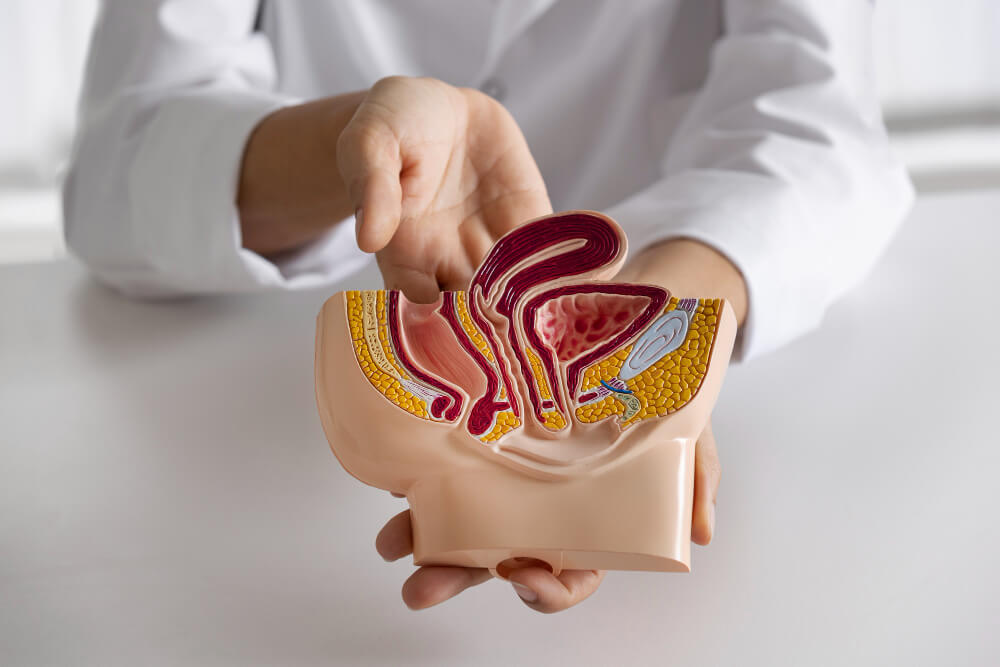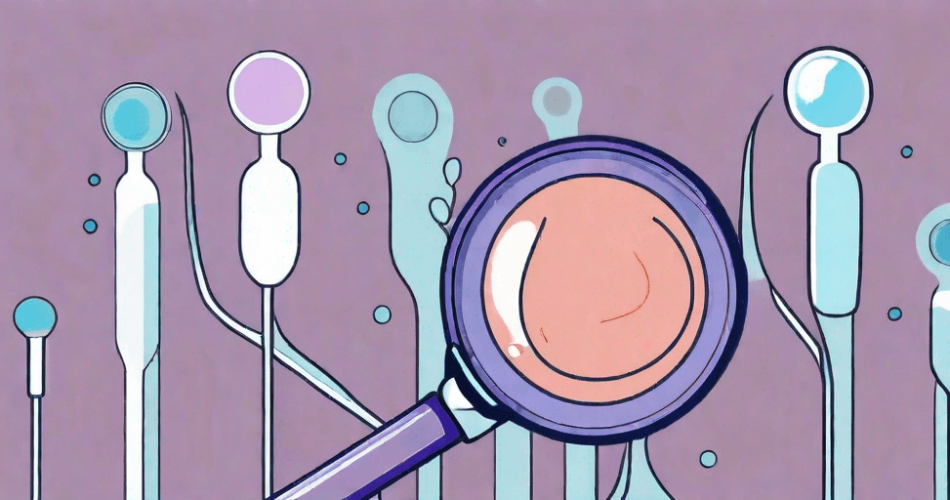Urinary Tract Infections (UTIs) are a common and uncomfortable condition that can affect both men and women. Understanding the signs and symptoms of UTIs is essential for early detection and prompt treatment. In this article, we will explore the various aspects of UTIs and how your body might be telling you that something is wrong.
Understanding Urinary Tract Infections
Urinary Tract Infections (UTIs) are a common and uncomfortable condition that occur when bacteria enter the urinary tract. The urinary tract consists of the bladder, urethra, ureters, and kidneys, all of which play vital roles in the body’s waste elimination process. When bacteria invade this system, it can lead to discomfort, pain, and disruption of everyday life. However, understanding the causes and recognizing the warning signs of UTIs can help individuals take proactive steps to prevent and effectively manage these infections.

What is a Urinary Tract Infection?
A urinary tract infection, commonly referred to as a UTI, is an infection that can affect any part of the urinary system. The most frequently encountered type of UTI is a bladder infection, also known as cystitis. If left untreated, the infection can progress and spread to the kidneys, leading to more severe complications. UTIs are typically caused by bacteria, with Escherichia coli (E. coli) being the most common culprit.
When bacteria enter the urinary tract, they can multiply and attach to the lining of the bladder or urethra. This attachment can cause irritation and inflammation, resulting in the characteristic symptoms of a UTI, such as a frequent urge to urinate, a burning sensation during urination, cloudy or strong-smelling urine, and pelvic pain. It is important to note that while UTIs are more common in women, men can also develop these infections.
Common Causes of UTIs
UTIs can occur due to various factors, and understanding these causes can help individuals take preventive measures. Sexual activity can increase the risk of developing a UTI, as bacteria can be introduced into the urinary tract during intercourse. Poor hygiene practices, such as not wiping properly after using the toilet or using unsanitary bathroom facilities, can also contribute to the development of UTIs.
In addition, individuals with a suppressed immune system, either due to medical conditions or certain medications, may be more susceptible to UTIs. Hormonal changes, such as those that occur during pregnancy or menopause, can also increase the risk. Furthermore, the use of certain birth control methods, such as diaphragms or spermicides, can disrupt the natural balance of bacteria in the urinary tract, making it more susceptible to infections.
Women are generally more prone to UTIs compared to men due to their shorter urethra. The urethra is the tube that carries urine from the bladder to the outside of the body. In women, the urethra is closer to the anus, making it easier for bacteria from the gastrointestinal tract to reach the bladder. Additionally, pre-existing medical conditions such as diabetes or urinary tract abnormalities can also increase the risk of developing UTIs.
It is important to note that while UTIs can be uncomfortable and disruptive, they can usually be effectively treated with antibiotics. However, recurrent or severe UTIs may require further medical evaluation and management. Taking preventive measures, such as practicing good hygiene, staying hydrated, and urinating before and after sexual activity, can help reduce the risk of developing UTIs.

Early Warning Signs of a UTI
Recognizing the signs and symptoms of a UTI is crucial for timely intervention and effective treatment. By paying attention to the signals your body sends, you can catch a UTI in its early stages and prevent complications. Keep in mind that everyone’s experience with UTIs may vary, but the following signs are commonly associated with the condition:
Physical Symptoms to Look Out For
Common physical symptoms of a UTI include a strong, persistent urge to urinate, a burning sensation during urination, cloudy or strong-smelling urine, and pelvic pain or discomfort. Some individuals may also experience blood in their urine or abdominal pain. It is important to note that these symptoms can also indicate other medical conditions, so it is essential to seek medical attention for an accurate diagnosis.
Changes in Urination
In addition to physical symptoms, changes in your urination patterns can also indicate a UTI. This can include frequent urination, feeling the need to urinate but only passing small amounts, or experiencing difficulty in fully emptying the bladder. Any significant changes in your usual urination habits should be taken seriously and discussed with a healthcare professional.
When it comes to UTIs, prevention is key. Maintaining good hygiene practices, such as wiping from front to back after using the toilet, can help reduce the risk of bacteria entering the urethra. Staying hydrated and urinating regularly can also help flush out any potential bacteria. Additionally, avoiding irritants such as harsh soaps or douches in the genital area can help maintain a healthy balance of bacteria.
It is worth noting that certain individuals may be more prone to UTIs than others. Women, for example, have a shorter urethra than men, making it easier for bacteria to reach the bladder. Sexual activity can also increase the risk of UTIs, as bacteria can be introduced into the urinary tract. For individuals who experience recurrent UTIs, it may be helpful to discuss preventive measures with a healthcare professional.
When seeking medical attention for a suspected UTI, healthcare providers may perform a urine test to confirm the presence of bacteria. Depending on the severity of the infection, antibiotics may be prescribed to eliminate the bacteria and alleviate symptoms. It is important to complete the full course of antibiotics as prescribed, even if symptoms improve, to ensure that the infection is fully eradicated.
In some cases, UTIs can lead to complications if left untreated. These complications can include kidney infections, which can cause more severe symptoms such as fever, back pain, and nausea. Pregnant women with UTIs should be especially cautious, as untreated infections can increase the risk of preterm labor and other complications during pregnancy.
Overall, being aware of the early warning signs of a UTI and taking prompt action can help prevent the infection from worsening and causing further discomfort. By maintaining good hygiene practices, staying hydrated, and seeking medical attention when necessary, individuals can effectively manage and treat UTIs.

The Connection Between UTIs and Your Body’s Signals
Understanding the connection between UTIs and the signals your body sends can help you better interpret what your body is trying to communicate. By paying attention to the signs, you can seek medical attention promptly and take preventive measures to reduce the risk of recurrent UTIs.
A urinary tract infection (UTI) is a common condition that occurs when bacteria enter the urinary tract, causing an infection. The urinary tract includes the bladder, urethra, ureters, and kidneys. UTIs can affect people of all ages and genders, but they are more prevalent in women due to their shorter urethra, which makes it easier for bacteria to reach the bladder.
When bacteria enter the urinary tract, they can cause inflammation and infection. This can lead to various symptoms, such as a frequent urge to urinate, a burning sensation during urination, cloudy or bloody urine, and lower abdominal pain. These symptoms are your body’s way of signaling that something is wrong.
Interpreting Your Body’s Messages
Your body often provides warning signs when something is not right. Trusting these signals and seeking medical attention can make a significant difference in managing UTIs effectively. It is crucial to listen to your body and address any persistent symptoms promptly.
In addition to the common symptoms mentioned earlier, some individuals may experience fever, chills, and back pain. These symptoms may indicate that the infection has spread to the kidneys, requiring immediate medical attention. Ignoring these signals can lead to complications, such as kidney damage or a more severe infection.
It’s important to note that not all urinary symptoms are necessarily indicative of a UTI. Other conditions, such as sexually transmitted infections or bladder stones, can cause similar symptoms. Therefore, it is essential to consult a healthcare professional for an accurate diagnosis.
When to Seek Medical Attention
If you suspect you have a UTI or experience any of the symptoms mentioned earlier, it is imperative to reach out to a healthcare professional for proper evaluation and diagnosis. Prompt medical attention can help prevent the infection from spreading and minimize discomfort. Your doctor may order a urine test to confirm the presence of bacteria and determine an appropriate treatment plan.
During your medical evaluation, your healthcare provider will ask about your symptoms, medical history, and any recent changes in your urinary habits. They may also perform a physical examination and request additional tests, such as a urine culture, to identify the specific bacteria causing the infection.
Based on the results of these tests, your healthcare provider will prescribe an appropriate treatment plan. This may include antibiotics to eliminate the bacteria and relieve your symptoms. It is crucial to complete the full course of antibiotics as prescribed, even if your symptoms improve, to ensure that the infection is completely eradicated.
Additionally, your healthcare provider may recommend preventive measures to reduce the risk of recurrent UTIs. These may include drinking plenty of water, urinating before and after sexual activity, practicing good hygiene, and avoiding irritating substances, such as harsh soaps or bubble baths.
By understanding the connection between UTIs and your body’s signals, you can take proactive steps to manage and prevent these infections. Remember to listen to your body, seek medical attention when necessary, and follow your healthcare provider’s recommendations for optimal urinary tract health.
Prevention and Treatment of UTIs
Preventing UTIs and effectively treating them when they occur are essential for maintaining optimal urinary health. By implementing certain lifestyle changes and following recommended medical treatments, you can minimize the risk of UTIs and their impact on your daily life.
Lifestyle Changes for UTI Prevention
There are several proactive steps you can take to reduce the likelihood of developing UTIs. These include practicing good hygiene, urinating before and after sexual activity, avoiding irritating feminine products, staying hydrated, and wearing breathable underwear. Additionally, maintaining a healthy lifestyle, including a balanced diet and regular exercise, can help boost your immune system and promote overall well-being.
Medical Treatments for UTIs
When it comes to treating UTIs, antibiotics are typically prescribed to eliminate the bacterial infection. It is crucial to complete the entire course of antibiotics as prescribed by your healthcare provider, even if your symptoms start to improve. In some cases, your doctor may also recommend over-the-counter pain relievers to alleviate discomfort.
Living with Chronic UTIs
For individuals who experience recurring UTIs, managing the condition can be challenging. Chronic UTIs can significantly impact quality of life and require a tailored approach to prevent and minimize their occurrence.
Managing Recurring UTIs
If you find yourself experiencing frequent UTIs, it is essential to work closely with your healthcare provider to develop a personalized management plan. This may include long-term antibiotic prophylaxis, changes in hygiene routines, reviewing any underlying medical conditions, and exploring alternative treatment options. Open and honest communication with your healthcare provider is crucial in finding an approach that works best for you.
Impact of Chronic UTIs on Quality of Life
Living with chronic UTIs can take a toll on one’s physical and emotional well-being. The impact can range from discomfort and pain to disruptions in daily activities and even emotional distress. Seeking support from healthcare professionals, utilizing coping strategies, and connecting with support networks can help navigate the challenges associated with chronic UTIs.
Conclusion
Recognizing the signs of a UTI and understanding what your body might be telling you is vital for prompt intervention and effective treatment. By familiarizing yourself with the symptoms and risk factors associated with UTIs, you can take proactive steps to prevent them and seek medical attention if necessary. Remember, your urinary health is an essential part of your overall well-being, and taking care of it should always be a priority.
If you are experiencing or feeling the signs of UTI indicated in this article, please do not hesitate to consult with an expert doctor. Book a consultation today.
UTI Awareness Quiz
Test your knowledge about Urinary Tract Infections
Experiencing UTI Symptoms?
Don’t wait for the infection to worsen. Book a consultation with a specialist today.
Learn More About UTI


